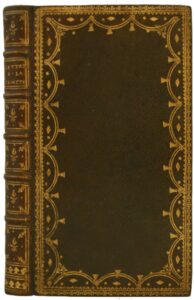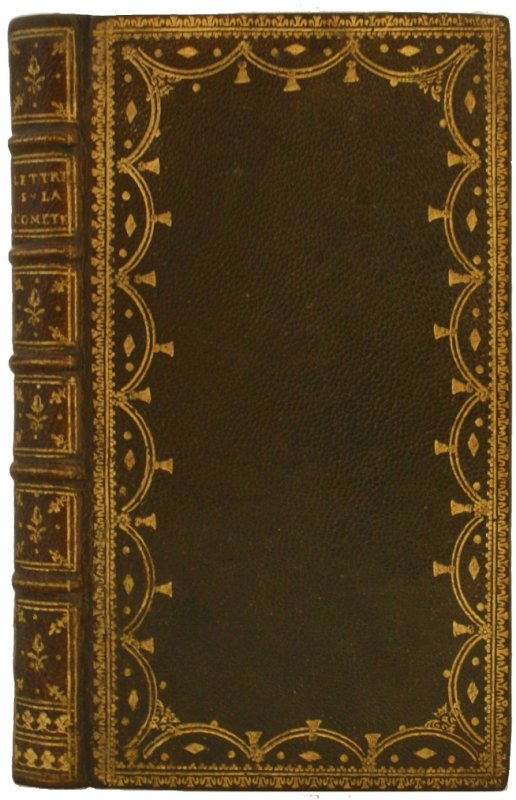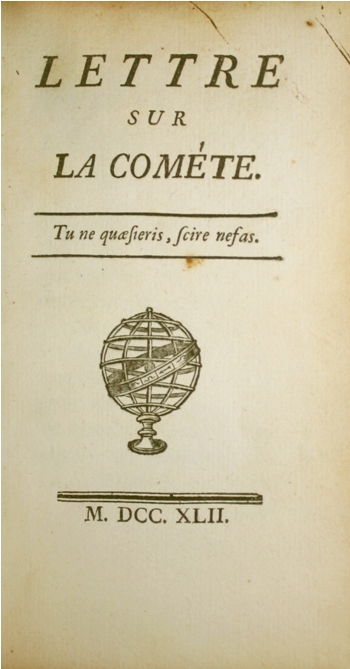N.p. [Paris], 1742.
12mo [155 x 87 mm] of (1) bl.l., (4) ll., 111 pp., (1) bl.l. Bound in full contemporary olive green morocco, covers decorated with a gilt dentelle, spine ribbed and decorated, inner gilt border, doublures and endpapers with a gilt star pattern, edges gilt. Corners slightly rubbed. Contemporary binding.
First edition of this astronomy treatise written by Maupertuis on the occasion of the passage of the comet in 1742. Graesse, Trésor de livres rares, IV, 448 ; Barbier, Dictionnaire des ouvrages anonymes, II, 1207 ; Brunet, III, 1543 ; Quérard, La France littéraire, V, 642 ; Houzeau-Lancaster 5826.
The comet tackled in this Letter was seen on the 2nd of March 1742 at the Paris Observatory. The author explains here Newton’s system.
Maupertuis, in his Lettre sur la comète, considering the extreme heat the one of 1680 had contracted towards the sun, seems to believe that if the comet had passed by near the Earth, it would have reduced it to ashes, or would have vitrified it, and that if its tail only had reached us, the Earth would have been flooded with burning and destructive exhalations.
Pierre-Louis Moreau de Maupertuis (1698-1759) was a French philosopher, geometrician and astronomer. Travelling for his instruction near scholars of the time, he formed up a friendship with the Bernoulli, La Condamine and Voltaire, whom he made an enthusiastic disciple of Newton’s system. In 1737, he was sent by Maurepas to the North Pole with an expedition that was supposed to measure a degree of the earthly meridian. In 1740, Frédéric II had appointed him president of the Berlin Academy. In 1743, the London Royal Society, then the French Academy welcomed him. “The comet observed on the 2nd of March 1742 at the Paris Observatory was an opportunity for him to address a letter to a lady in which he gathered everything that had been said about theses stars, true or false. But far from reassuring men, he shows the damages the comets could cause in the universe if they came across our planet.” (Biographie générale, 34, 389). “The details given in the ‘Lettre sur la comète’ were of interest at a time when the astronomical science wasn’t as popular as it is today. According to Maupertuis, this comet could have stolen our moon from us, and, ‘if we were off with this’, he said, ‘we shouldn’t complain’. (P. Levot, Biographie bretonne, II, 428) Precious copy of this astronomic treatise by Maupertuis, preserved in its fine contemporary decorated olive green morocco binding, a rare condition for scientific first editions.
See less information



